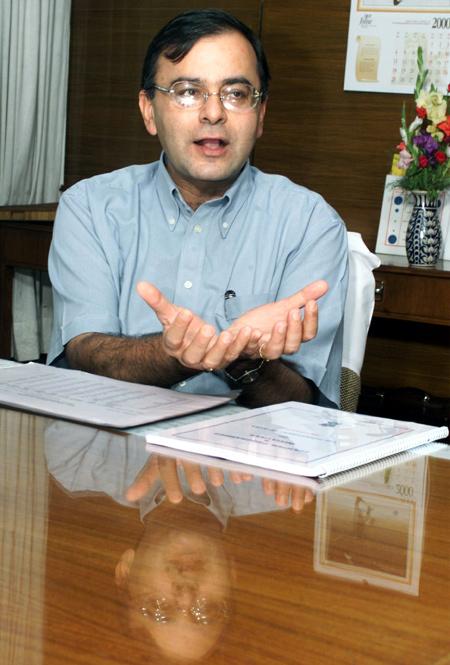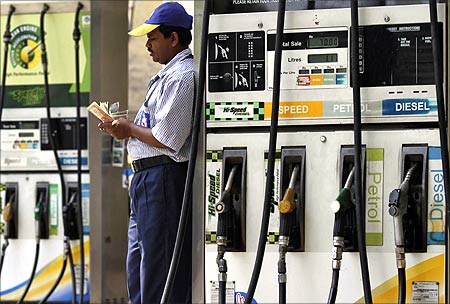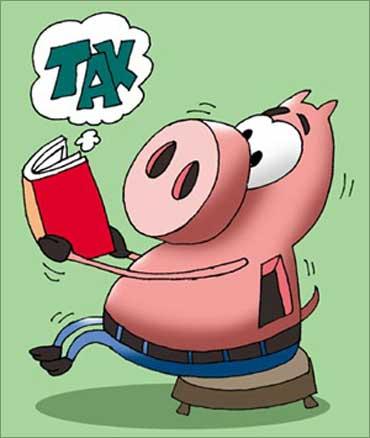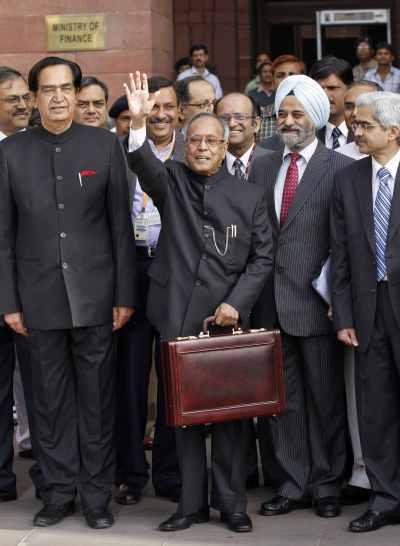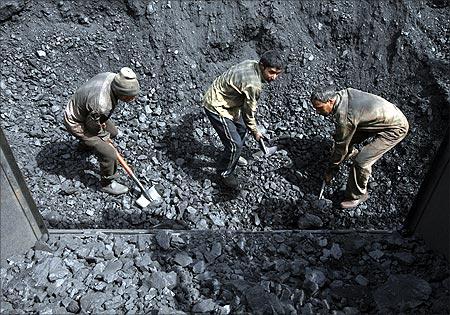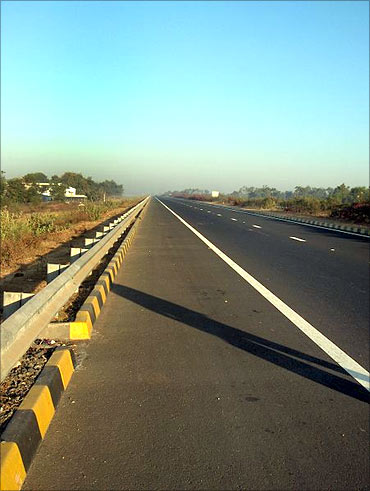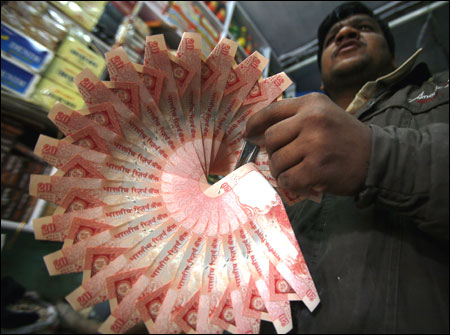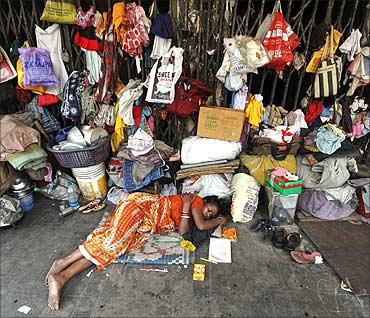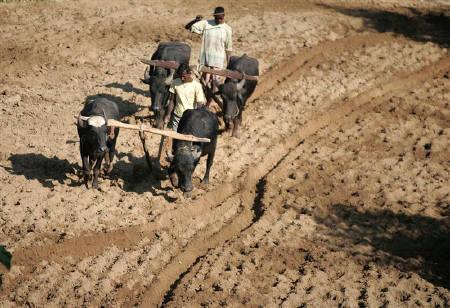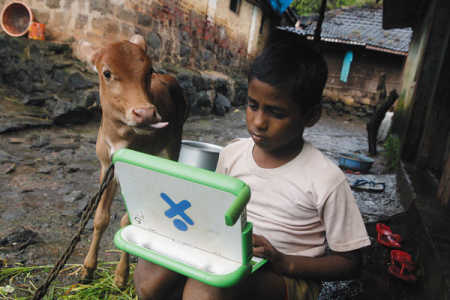 | « Back to article | Print this article |
UPA's policy is anti-citizen: Arun Jaitley
The Bharatiya Janata Party (BJP) on Monday criticized the Union Budget 2012-13 saying it has "dampened" economic sentiments as almost all services have been brought under tax ambit.
"The approach of this budget is to tax people where we can tax. This is a retrograde approach," Leader of the Opposition Arun Jaitley said.
Here's Arun Jaitley's speech initiating the debate on the General Budget in the Rajya Sabha. India's economic planning post-1991 has been distinctively different from the previous ones.
Whether it was the Congress, the United Front or the NDA government, the direction of the economy was towards a larger wealth creation and distribution of enlarged resources to help the weaker sections of the society.
The economic policy of the UPA-I rule made no advancement due to ideological conflict between the UPA and the Left. The UPA-II has seen the sentiment with regard to the economy touch a new low.
The Budget is not merely an accounting statement. It must indicate a specific approach of the economic direction. The 2012 Budget is the first post-1991 Budget, which has been prepared with the pre-1991 mindset.
Click NEXT to read more...
UPA's policy is anti-citizen: Arun Jaitley
The break from pre-1991 era
In the 1991 Budget speech, the then Finance Minister distinguished the post-1991 Budget with the following comments.
"The recent years have witnessed an excessive reliance on indirect taxes for additional resource mobilization. This escalates cost, fuels inflation, and is regressive in its impact. Therefore, I have not relied on indirect taxes as a major source of resource mobilization. Indeed, the overall impact of my proposals for customs and excise levies is revenue negative in so far as the central government is concerned".
The pre-1991 Budget was premised on the concept of raising higher taxes to match higher governmental expenditure.
The object of rationalising the taxes was to bring down the prices, increase saving and growth, make the economy more competitive, increase volume of economic activities, creating larger revenue, larger employment, better infrastructure and attracting more investment.
Click NEXT to read more...
UPA's policy is anti-citizen: Arun Jaitley
What is the approach of the UPA-II?
The UPA-II's policy is anti-citizen. It believes that citizens must be taxed, wherever they can be taxed. We are amongst the higher taxing nations.
The UPA's tax policy wants to impose tax on earning, manufacturing, trading, spending and on savings and on larger economic activity. A citizen pays tax on what he earns.
He also pays education cess in addition to income tax. He pays excise on what he buys and also pays VAT on it.
If goods come from outside the country, he pays custom duty; if from outside the city, he pays Octoroi /entry tax. He pays tax on his savings, on what he accumulates. He pays if he uses the road, he pays stamp duty if he buys property. He pays tax even on entertainment.
He pays tax for the house he lives in and tax on water/electricity he consumes. He pays tax on other services that he hires. From what a citizen earns, a back of the envelop calculation is that he pays more than 55 percent as tax on his income, both direct and indirect.
Even the aam admi, who has no savings, pays various forms of direct and indirect taxes. The 2012 Budget is the direct opposite of post-1991 philosophy. If 1991 was a defining moment of the Indian economy, the present Budget has killed the joy of that moment.
Why is it that we have reached this stage – the problem of two power centres.
When the UPA-I was formed, it was legitimately argued, that no political system, let alone the largest democracy, can survive with the two power Centres. But today the two power centres are in terms of economic policy, not on the same page.
One believes in the pre-1991 philosophy, the other in the post-1991 philosophy. The result is a national casualty. The North Block taxes us. 10, Janpath decides where we spend the money. The result is higher taxes to meet higher expenditure.
Click NEXT to read more...
UPA's policy is anti-citizen: Arun Jaitley
Why does this government not get political support for its economic decisions?
Ordinarily, there must be a national consensus at least with the mainstream parties on the economic policy.
There may be some areas of difference, but there should be a larger consensus. The direction of the Congress government from 1991 to 1996 and the NDA in terms of the economic policy was not substantially different.
Why is it that this government is losing support, both of the friends and foes? The answer is clear. Political deception and arrogance of power are the root causes for non formulation of national consensus.
a. Left: The Left supported the UPA-I for four and half years. It feels that they were stabbed in the back and that the UPA is not trustworthy.
b. SP and BSP: The SP and BSP are two non-ideological groups with a strong social base. For several years the UPA has blackmailed them, whenever needed, by using the CBI. If there is a case against their leader, they must be prosecuted.
If there is no case made out against them, they should be exonerated but the UPA has realized its survival depends not upon the fading family charisma of its principal leader but on the CBI's ability to manage support from these two parties.
Click NEXT to read more...
UPA's policy is anti-citizen: Arun Jaitley
c. BJP: Never has India witnessed a breakdown of communication between the government and the Principal Opposition party. Laws passed by the state legislatures of the NDA governments are not receiving governor's/President's assent.
The governors are obstructing various legislations and programmes. Lokayuktas are appointed in the states without consulting the Chief Ministers.
The CBI has been misused in several states to fix the political opponents. There is discrimination in terms of allocation of coal allocation, various schemes and even national highways.
The loss of faith which the states had in the centre has led to delay in implementation of GST, in which many people otherwise see a positive.
d. Allies: The question, which your ally from Tamil Nadu is asking is – was the 2G decision taken by its representatives alone or any member of the Congress was a part of this decision making. But then one is to be prosecuted and the other is to be protected.
The TMC rightly feels shortchanged that Congress stole the affections of a vulnerable member of TMC who was a cabinet minister and got its agenda implemented through him.
It tried to split the TMC and thought it can survive through maneuvers rather than consensus. The distrust between the TMC and the Congress is undeniable.
The economic policy consensus is intrinsically linked to the political environment.
When politics is gentlemanly, we will disagree politically but agree to revive the economy. When politics is manipulative and revengeful, you alone will suffer the responsibility for economic decline.
Click NEXT to read more...
UPA's policy is anti-citizen: Arun Jaitley
Does the Budget honestly reflect the figures of the current year's fiscal deficit?
The fiscal deficit for the year 2011-12 is fixed at 5.9 percent. My fear is that this figures suffers from several non-provisions, particularly the full impact of the subsidies. The government has chosen to keep it below 6 percent for optical reasons but the figure may actually rise.
For the year 2012-13, the fiscal deficit is projected at 5.1 percent. This figure is based on several inaccurate premises. It is based on a premise that despite some heavy tax burdens, the economy will continue to flourish and direct & indirect taxes will increase in the year by over Rs. 1.73 lakh crores.
On the expenditure side, the Budget clearly mentions that the government will accept the entire responsibility for the Food Security Act. Yet, it has reduced the provision of subsides by over Rs. 26,000 crores. The figure for food subsidy, oil subsidy and fertilizers has been understated.
Click NEXT to read more...
UPA's policy is anti-citizen: Arun Jaitley
Debt Management
The cash management bills and the ways and means advance which reflects short term borrowing from Reserve Bank has been hugely expanded to Rs. 95,000 crores and Rs. 700,000 crores.
The Impact of additional taxes
The increase across the board in excise duty by 2% is going to make the manufacturing sector sluggish. The expanse of service tax has been increased. The rate of service tax has been increased from 10 to 12% by tinkering on various items.
The duties and taxes imposed on gold are going to substantially affect the business of gold and jewellery particularly its exports from India. In order to revive the economy, it has to be made more competitive and more efficient and more investment friendly.
There is a reverse flight of investments. Indian businesses are looking for investment opportunities outside the country in more lucrative countries where there is likelihood of profitable businesses.
The Indian economy with rising inflation, policy paralysis, increased interest rates, political instability and high taxation even retrospective taxation has adversely affected the business environment.
The challenge before this budget was to improve the sentiment. This Budget has done the opposite. This will increase inflation, this will fly investments outside the country, increase deficit, make the economy more sluggish. There appears to be no prospect of effective policy evolution.
Click NEXT to read more...
UPA's policy is anti-citizen: Arun Jaitley
Infrastructure
As against the target of 20 kms a day in Highway construction, we have barely reached 5 kms a day.
Airport extension and improvement has slowed down. Only one additional berth has been commissioned for the Port sector. And power sector has suffered due to the problems of coal supply and environmental issues.
The issue of distribution of natural resources requires a wider debate in this country. Its about time that the Government of the day takes a decision as to how natural resources are to be awarded particularly because of the huge controversy in the 2G scam and the recent award of coal blocks scam.
Poverty Estimates
The government has claimed that in the five year period that is 2004-05 to 2009-10, the poverty in India has declined from 37.2% to 29.8%. Are people earning more or is it merely because of the criteria amount of Rs.32/- per day (as per the Planning Commission) reduced to Rs. 28 per day.
Is it merely because the government has altered the goal posts or because external aids such as the mid day meal scheme are being introduced to make the reduction on poverty visually more acceptable.
Click NEXT to read more...
UPA's policy is anti-citizen: Arun Jaitley
Agriculture
The population increase is not matched by the increase in quantum of food production. The change of eating habits is also not adequately reflected in the growth of our agriculture. The investment in agricultural is meager.
The proposed expenditure on crop insurance in this budget has declined. The input cost of fertilizers, seeds, power has increased.
On account of the nature's mercy, we had a bumper harvest. But we are faced with the problem of storage, and the distress of farmers continues because of increasing input costs and low profitability.
Retrospective Taxation
I had referred to this point in my earlier speeches while speaking in this House. There is a need for certainty in tax planning. The FM has referred to it in his speech. But it appears that the speech of the FM and the Finance Bill has been prepared by different persons.
The government must do away with the very idea retrospective legislation. How can there be a certainty in tax planning if taxes are to be imposed retrospectively.
When people invest in a particular tax domain, it is based on the prevalent tax structures. Even closed assessments are reopened when retrospective tax legislation is brought in. The government must seriously consider whether retrospective taxation may hurt both domestically and internationally.
Click NEXT to read more...
UPA's policy is anti-citizen: Arun Jaitley
Service Tax
This is one of the biggest burdens imposed in this Budget. You have taxed all services except those in the negative list. I have three objections to this:
1. Firstly, a 12% service tax is exorbitant.
2. Secondly, the services which are clearly in the State list are now being taxed by the Central Government. I hope that the collections under these heads is passed on to the States.
3. While creating a list of 17 exemptions in the negative list, you have chosen to incentivize betting , gambling and lottery and exempted them from service tax.
Right to Education
This Budget renders the right to education which was made a fundamental right otiose. The expenditure for the enforcement of the right was to be originally shared in the ratio of 75:25 between the Centre and the States.
This has been reduced to 50 :50 between the centre and the states. The states are already in a state of distress. Most States say that they do not have the funds.
Click NEXT to read more...
UPA's policy is anti-citizen: Arun Jaitley
Taxes on oil
A large part , that is almost 50 per cent of what the consumers pay for petroleum and oil is because of different taxes on petroleum products.
You have further increased the prices because the cess on petroleum imports have been increased from Rs.2500/- per MT to Rs 4500 per MT.
The government is expecting that the 122 (one twenty two) 2G licenses which were canceled will now fetch for the government along with charges of spectrum in excess of 6.4 MHZ an amount of Rs. 58,217 crores.
It is unlikely considering the lack of sentiment in the market and with 3G spectrum already available and the 4G spectrum likely to be available in the near future. The value of the 2G spectrum may have fallen considerably.
States shares in the Small savings has been reduced from 80% to 50% pushing the States to further distress.
You have sought to amend the Customs Act and making certain provisions as onerous provisions. For offences punishable beyond three years, you have not only made them non-bailable but you have made them same bail provisions, which were available under TADA and POTA.
This government had revoked the stringent bail provisions against terrorists who are accused under TADA or POTA on the ground that these provisions were onerous. The same provisions have now been introduced, in relation to offences under the Customs Act.
Your Budget is a great disappointment. It reverses the trend of growth. My appeal to the Finance Minister would be to discard the pre-1991 philosophy and reconsider some of the provisions in the sync with the post-1991.
